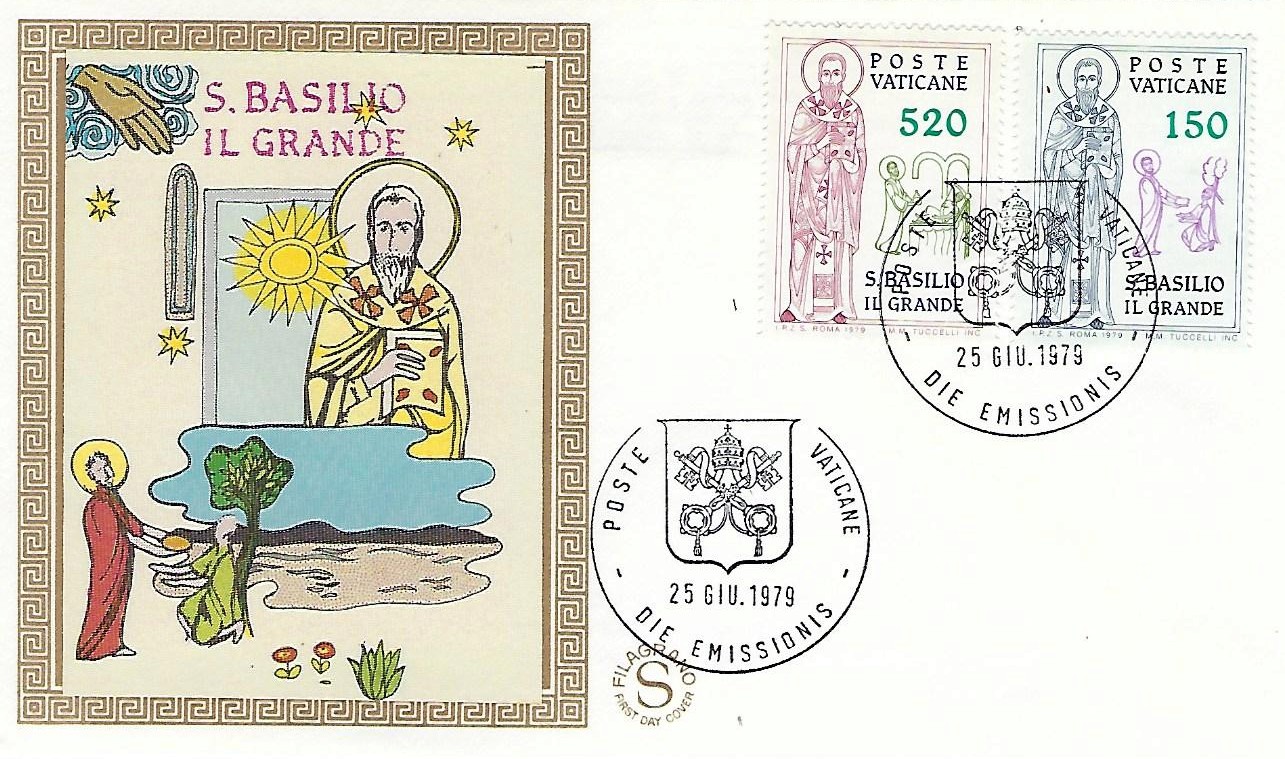
Home

 St. Basil the Great: 1600th Anniversary of Death Instructing Monk and Visiting the Sick Scott 652-653 (1979) January 2 marks the Feast of Saint Basil the Great on the Liturgical Calendar. It falls one day after the anniversary of his death on January 1, 379. This feast day is shared with another of the early Doctors of the Church, Saint Gregory of Nazianzus. Basil the Great was born at Caesarea, capital of Cappadocia in Asia Minor, around the year 330 to a wealthy Christian family. He studied first at Constantinople and later at Athens. Upon completing his education, he returned to Caesarea and taught rhetoric in his native city for a number of years. Through the efforts of his sister Macrina, Basil was baptized and he immediately thereafter withdrew himself to Pontus where he devoted himself to prayer and study. Gradually he gathered a group of like-minded men around him and formed the first monastery in Asia Minor. The rules under which this monastery's life was organized are the same as those which regulate the lives of the monks in the Eastern Church to the present day. Thus, although Basil lived as a monk for only five years, his influence on Christian monasticism is great. In 363 Basil was ordained priest and deacon at Caesarea. The following year he became bishop of the city. Almost immediately, he was faced with the most difficult challenge of his religious life. Valens, the Roman emperor, had fallen under the spell of the Arian heresy. This heresy stated that Jesus Christ was neither truly God nor truly man. Valens demanded that Basil either submit to Arianism or some compromise between heresy and orthodoxy. Basil stood against the emperor's threats and Valens, largely because of the bishop's steadfastness, withdrew from Caesarea. Throughout his tenure as bishop, Basil would remain the champion of orthodoxy in the east. Despite chronic ill health, Basil tirelessly attempted to aid both the temporal and spiritual needs of his parishioners. He urged regular attendance at Mass and he organized a hospital outside the gates of Caesarea for the poor which soon gained widespread fame. The bishop made trips to the most remote corners of his diocese and because of Basil's strict supervision of his clergy and his demands that only suitable candidates be admitted to religious orders, his diocese became the model of ecclesiastical order and discipline. Basil died on January 1, 379 at the age of 49, worn out by hard work and ill-health. The bishop was mourned by Christians, pagans, and Jews alike as a father protector.  The Fathers of the Church: Saint Basil of Caesarea, Saint John Chrysostom, Saint Gregorius of Nazianzus 17th Century icon , Historic Museum in Sanok, Poland From Wikimedia Commons, in the Public Domain The iconography depicted above pictures Saint Basil the Great with two of the other giants of the early Eastern Church, Saint John Chrysostom and Saint Gregory of Nazianzus. The three are all Doctors of the Church and are referred to as the “Three Great Hierarchs and Ecclesiastical Teachers of the Eastern Orthodox Church”. To date, neither Saint Gregory of Nazianzus nor Saint John Chrysostom have been honored with stamps by Vatican City. REFERENCES: |
